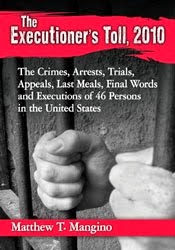Barack Obama tried to reduce the number of absurdly
long prison sentences in America, reported The Economist. His attorney-general, Eric Holder, told
federal prosecutors to avoid seeking the maximum penalties for non-violent drug
offenders. This reform caused a modest reduction in the number of federal
prisoners (who are about 10% of the total). President Donald Trump’s attorney-general,
Jeff Sessions, has just torn it up. This month he ordered prosecutors to aim
for the harshest punishments the law allows, calling his new crusade against
drug dealers “moral and just”. It is neither.
More is not always better
Prisons are an essential tool to keep society safe.
A burglar who is locked up cannot break into your home. A mugger may leave you
alone if he thinks that robbing you means jail. Without the threat of a cell to
keep them in check, the strong and selfish would prey on the weak, as they do
in countries where the state is too feeble to run a proper justice system.
But as with many good things, more is not always
better (see article). The first people any rational society locks up
are the most dangerous criminals, such as murderers and rapists. The more
people a country imprisons, the less dangerous each additional prisoner is
likely to be. At some point, the costs of incarceration start to outweigh the
benefits. Prisons are expensive—cells must be built, guards hired, prisoners
fed. The inmate, while confined, is unlikely to work, support his family or pay
tax. Money spent on prisons cannot be spent on other things that might reduce
crime more, such as hiring extra police or improving pre-school in rough
neighborhoods. And—crucially—locking up minor offenders can make them more
dangerous, since they learn felonious habits from the hard cases they meet
inside.
America passed the point of negative returns long
ago. Its incarceration rate rose fivefold between 1970 and 2008. Relative to
its population, it now locks up seven times as many people as France, 11 times
as many as the Netherlands and 15 times as many as Japan. It imprisons people
for things that should not be crimes (drug possession, prostitution,
unintentionally violating incomprehensible regulations) and imposes
breathtakingly harsh penalties for minor offences. Under “three strikes” rules,
petty thieves have been jailed for life.
A ten-year sentence costs ten times as much as a
one-year sentence, but is nowhere near ten times as effective a deterrent.
Criminals do not think ten years into the future. If they did, they would take
up some other line of work. One study found that each extra year in prison
raises the risk of reoffending by six percentage points. Also, because mass
incarceration breaks up families and renders many ex-convicts unemployable, it
has raised the American poverty rate by an estimated 20%. Many states,
including Mr Sessions’s home, Alabama, have decided that enough is enough.
Between 2010 and 2015 America’s incarceration rate fell by 8%. Far from leading
to a surge in crime, this was accompanied by a 15% drop.
America is an outlier, but plenty of countries fail
to use prison intelligently. There is ample evidence of what works. Reserve
prison for the worst offenders. Divert the less scary ones to drug treatment,
community service and other penalties that do not mean severing ties with work,
family and normality. A good place to start would be with most of the 2.6m
prisoners in the world—a quarter of the total—who are still awaiting trial. For
a fraction of the cost of locking them up, they could be fitted with GPS-enabled
ankle bracelets that monitor where they are and whether they are taking drugs.
Tagging can also be used as an alternative to
locking up convicts—a “prison without walls”, to quote Mark Kleiman of New York
University, who estimates that as many as half of America’s prisoners could
usefully be released and tagged. A study in Argentina finds that low-risk
prisoners who are tagged instead of being incarcerated are less likely to
reoffend, probably because they remain among normal folk instead of sitting
idly in a cage with sociopaths.
Justice systems could do far more to rehabilitate
prisoners, too. Cognitive behavioural therapy—counselling prisoners on how to
avoid the places, people and situations that prompt them to commit crimes—can
reduce recidivism by 10-30%, and is especially useful in dealing with young
offenders. It is also cheap—a rounding error in the $80 billion a year that
America spends on incarceration and probation. Yet, by one estimate, only 5% of
American prisoners have access to it.
The road to rehabilitation
Ex-convicts who find a job and a place to stay are
less likely to return to crime. In Norway prisoners can start their new jobs 18
months before they are released. In America there are 27,000 state
licensing rules keeping felons out of jobs such as barber and roofer. Norway
has a lower recidivism rate than America, despite locking up only its worst
criminals, who are more likely to reoffend. Some American states, meanwhile, do
much better than others. Oregon, which insists that programmes to reform felons
are measured for effectiveness, has a recidivism rate less than half as high as
California’s. Appeals to make prisons more humane often fall on deaf ears;
voters detest criminals. But they detest crime more, so politicians should not
be afraid to embrace proven ways to make prison less of a school of crime and
more of a path back to productive citizenship.
To read more CLICK HERE








